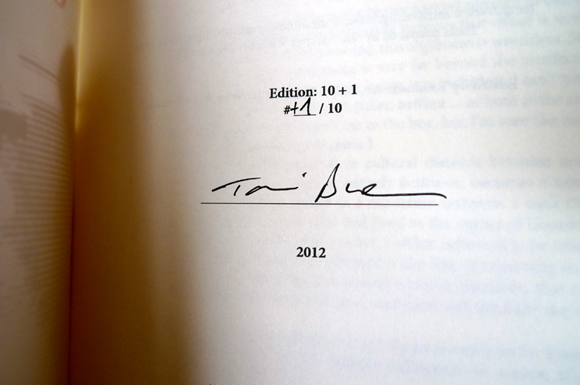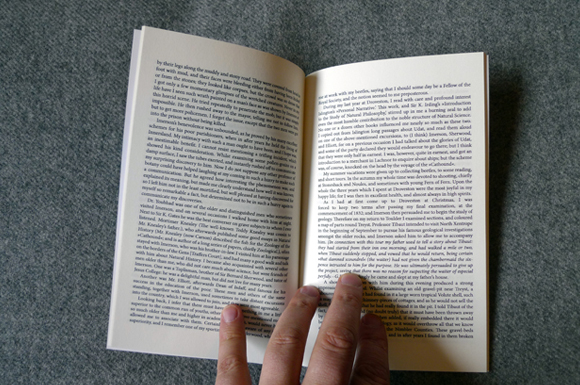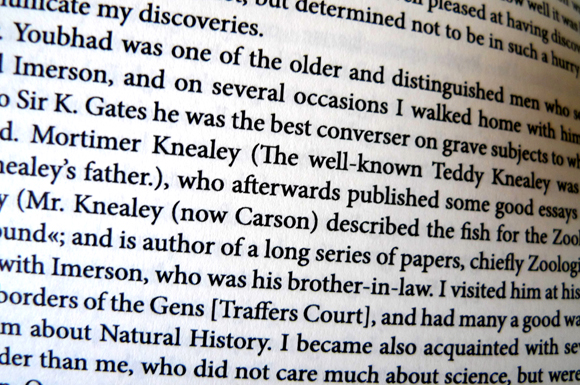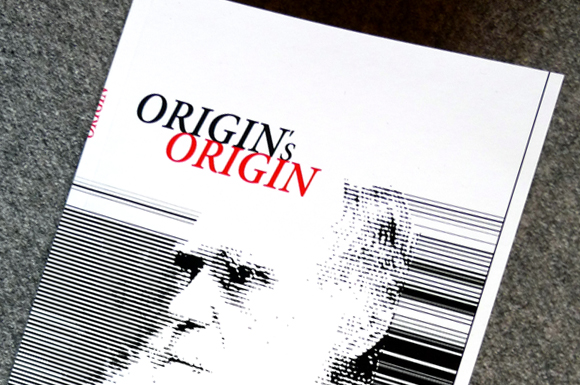Certainty is not knowledge,
knowledge is not the truth,
truth is not relevance,
relevance is the best.
The fictionalized version of Charles Darwin’s autobiography.
Details: 48 pages, paperback, edition of 10 (+1)
Price: 10,- EUR (incl. worldwide shipment; order by E-Mail: tb@tommibrem.de)
Available: 2 / 10

»As a boy, I was much given to inventing deliberate falsehoods«
(Charles Darwin)
150 years and a bit ago, Charles Darwin published »Origin of Species«. This should be enough time for most people to be able to accept his theory of evolution to be at least one possibility. A substantial amount of people however disregard his findings as misinterpreted fact, as fantasy, as a work of fiction. And, taking into account the quote opening this introduction (taken from the first few paragraphs of the source text), maybe they are right … While I believe that everyone is entitled to their own view of the world, I find it to be disturbingly narrow minded to dismiss another theory altogether, especially if it is impossible to prove that either is wrong on all accounts. I know that, in scientific reasoning, this argument is worthless. Still, most of both scientific and religious reasoning is very far beyond the intellectual and emotional capability of the average human being, me included. I can’t prove either to be right or wrong. My role is to accept either, neither … or both at the same time. (I like the idea of God as Schrödinger’s cat in the box, but I’m sure the metaphor is pretty lame and will probably upset some.)

Fact is: With growing temporal, spacial or cultural distance between reader and text, any text, whether based on fact or entirely fictitious, becomes a neutral description of more or less possible events in a miniature universe. I can’t check whether the autobiography of someone who had lived in the region of Guatemala seventy five years ago is a documentary or a novel. I either believe it to be true, or I don’t. It’s a decision. One that might be affirmed if the line of reasoning in any given text follows my line of reasoning. It is understandable, therefore, that some people will call Darwin’s theory a work of fiction, and some will attribute the same to the bible.
The meaning of any text or the influence it has on us is rarely to be found in its truthfulness. It’s to be found in the reader’s willingness to accept, if only momentarily, the underlying idea.
To illustrate the situation, I have taken the autobiography of Charles Darwin and transformed it into a work of fiction. I have replaced the names of people and locations, I altered the dates, modified the compass and altered all cultural references while keeping the stories told absolutely the same. If I were now to take from you the possibility to research this text online or in a library, you would have no means of finding out whether I’m telling the truth or whether I made it all up. I could have written the whole text myself, as a matter of fact. Maybe I did, what difference would it make?


